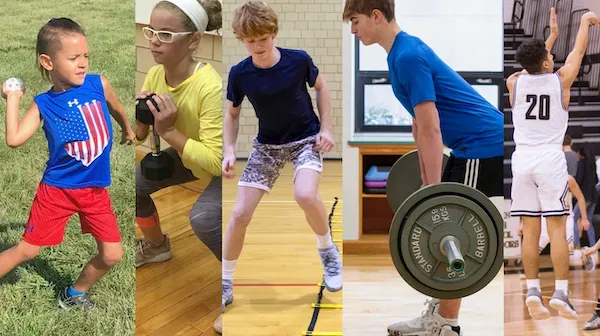Youth Sports Development is a holistic approach to nurturing young athletes that goes beyond mastering a single sport and strives to shape healthy habits, teamwork, and character for life. This framework blends physical skill development with strategic coaching and resilience-building to help youths grow as players and as people. By emphasizing developing young athletes through thoughtful practice, coaches can tailor instruction to developmental stages, linking fundamentals to adaptable problem-solving and building confidence that translates to school and community life. Rather than pushing early specialization, the approach promotes diverse experiences, adequate rest, and nutrition education so resilience in youth sports becomes a transferable strength that supports long-term well-being. With supportive coaching, engaged families, and safe, inclusive programs, Youth Sports Development creates clear pathways that nurture talent while prioritizing character, teamwork, and the joy of sport.
From an LSI-informed viewpoint, juvenile athletic growth, youth sport development, and junior athlete progression map the same journey in different words, emphasizing capacity, character, and long-term participation. These terminology variations signal a focus on structured practice, movement literacy, mentorship, and age-appropriate challenges that support sustainable improvement. Effective programs weave physical training with cognitive skills and social-emotional learning, creating environments where every young person can explore multiple roles and find joy in sport. By framing goals with diverse language, stakeholders can align on the shared aim of cultivating talent, resilience, and responsible leadership that extend beyond the playing field.
Youth Sports Development: Nurturing Talent, Character, and Resilience in Young Athletes
Youth Sports Development is a holistic framework that nurtures talent, character, and resilience in young athletes, extending beyond sport-specific drills. It blends physical skill development with strategic coaching, social-emotional learning, and healthy habits to support youths as players and as people. In this model, developing young athletes involves movement literacy, coordination, balance, and the development of decision-making speed, all guided by inclusive practices that value multiple sports and personal growth. Youth sports training is optimized when programs connect skill work with character education and opportunities to lead, collaborate, and persevere.
Talent development in sports is pursued without early specialization, recognizing that a diverse athletic background strengthens motor skills and reduces overuse risks. By designing progressive curricula aligned with growth, coaches can offer short, focused practice blocks, meaningful feedback, and adequate rest—creating an environment where resilience in youth sports can flourish as athletes learn to bounce back from mistakes and adapt to challenges. Through this approach, Youth Sports Development creates pipelines of talent while reinforcing teamwork, integrity, and healthy competition.
Coaching Youth Athletes: Designing Evidence-Based Training Pathways for Sustainable Talent Development in Sports
Coaching Youth Athletes emphasizes the craft of teaching and mentoring as much as technical skills. Effective coaches design age-appropriate, engaging sessions that balance challenges with achievable goals, supporting talent development in sports while keeping the athlete’s well-being at the center. By providing clear demonstrations, precise feedback, and individualized cues, coaches help developing young athletes translate practice into confident performance. In this context, coaching youth athletes also means monitoring workload, promoting cross-training, and fostering a growth mindset that views mistakes as learning opportunities.
Pathways emerge when coaching integrates a structured training pathway with parental involvement and community support. Programs that combine foundational movement with sport-specific techniques, tactical understanding, and rest/recovery elements create sustainable progress and resilience. Measuring progress beyond wins—tracking technical skills, decision-making, and leadership—helps ensure the talent development process serves both athletic goals and character growth.
Frequently Asked Questions
In Youth Sports Development, how can programs balance talent development in sports with resilience in youth sports to support developing young athletes?
Within Youth Sports Development, aim for balanced talent development in sports and resilience in youth sports. Focus on movement literacy, varied drills, and deliberate practice suited to growth stages; avoid early specialization and ensure ample rest and nutrition education. This approach helps developing young athletes build transferable skills such as decision-making, teamwork, and adaptability, while fostering resilience.
What practical strategies in Youth Sports Development help coaching youth athletes deliver effective youth sports training while fostering inclusive participation?
Practical strategies in Youth Sports Development center on coaching youth athletes with age-appropriate, outcome-informed practice design and structured youth sports training pathways. Use short, purposeful drills, clear demonstrations, individualized cues, and regular workload checks to protect health and sustain motivation. Promote inclusive participation, safe equipment, and active parental involvement to support development goals beyond wins.
| Aspect | Core Idea | Practical Focus |
|---|---|---|
| Talent Development in Youth Sports | Identify strengths, avoid early specialization, and build a learning path aligned with developmental stages. | Movement literacy, coordination, speed of decision-making; deliberate practice; varied drills; age-appropriate challenges; rest and nutrition education; emphasis on transferable skills. |
| Character Development and Leadership | Cultivate a culture of respect, accountability, and leadership; character as a foundation for performance. | Teamwork, sportsmanship, reflection circles, peer feedback, rotating leadership roles; modeling integrity by coaches. |
| Resilience and Mental Toughness | Grow the capacity to recover from setbacks and stay goal-driven with integrity. | Goal setting, positive self-talk, reframing, breathing, visualization; pre-competition routines; structured exposure to manageable challenge. |
| Role of Coaching, Parents, and Programs | Collaborative ecosystem that supports growth with positive reinforcement and clear communication. | Balanced parental involvement; consistent updates; emphasis on effort and improvement over winning; inclusive access and safe participation. |
| Designing an Effective Youth Training Pathway | An integrated framework across developmental stages. | Foundational (movement skills), Skill-building (techniques and tactics), Specialization (top skills with balance to academics), Transition (post-sport opportunities). |
| Coaching Quality and Practice Design | Effective coaches use age-appropriate, engaging, outcome-focused but not obsessively results-driven approaches. | Short, purposeful drills; occasional competitive scrimmages; reflection time; clear demonstrations and feedback; workload monitoring; rest days; growth mindset. |
| Parental Involvement and Community Context | Parents support routines and environments that reinforce training goals without pressuring outcomes. | Sleep, nutrition, hydration; regular communication; reducing participation barriers; community programs and inclusive access. |
| Measuring Progress Beyond Wins | Assess progress across multiple dimensions beyond scoreboard results. | Technical, tactical, physical literacy; psychological growth; social development; regular objective assessments and qualitative feedback. |
| Practical Challenges and Safeguards | Recognize and mitigate common risks to ensure sustainable development. | Prioritize rest and sleep; encourage multi-sport sampling; nutrition education; safe equipment; inclusive culture; ongoing coach development. |
| Measuring Success for All Stakeholders | Capture diverse perspectives to gauge real impact on athletes, families, and coaches. | Broader indicators include confidence, teamwork, commitment to health, ongoing engagement with sport beyond peak seasons. |
Summary
Conclusion: Youth Sports Development is a holistic framework that builds talent, character, and resilience in young athletes. By combining evidence-based skill development with deliberate attention to mental toughness, leadership, and ethical play, communities can create sustainable pipelines of talent while shaping healthier, more resilient individuals. The most impactful programs empower youths to explore their potential across physical, cognitive, emotional, and social dimensions, so that sport becomes a positive force in their lives for years to come. When coaches, parents, and program designers collaborate to design age-appropriate, inclusive, and safe experiences, Youth Sports Development can transform how we cultivate tomorrow’s athletes and tomorrow’s leaders.



